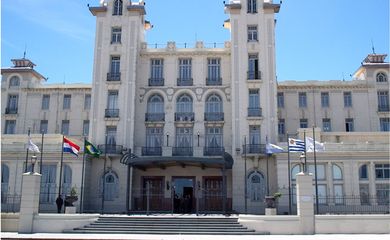EU-Mercosur agreement expected to boost Brazil's trade by BRL 94B

The Brazilian government estimates that the free trade agreement announced on Friday (Dec. 6) between Mercosur and the European Union (EU) will increase trade between Brazil and the EU by BRL 94.2 billion, representing a 5.1 percent rise in current trade. Additionally, the agreement is expected to boost Brazil's Gross Domestic Product (GDP) by BRL 37 billion, or approximately 0.34 percent of the country's economy.

Since the reduction in import tariffs will be gradual, the economic team projects the estimated impact to be felt by 2044. With the tariff cuts, the government anticipates an increase of BRL 42.1 billion in imports from the EU and a BRL 52.1 billion rise in Brazilian exports to the bloc.
The European Union is Brazil's second-largest trading partner, following China. In 2023, trade between Brazil and the EU accounted for 16 percent of the country's total foreign trade.
Professor Giorgio Romano Schutte, a member of the Observatory of Brazil's Foreign Policy and International Insertion (OPEB), stated that the current agreement is an improvement over the one negotiated in 2019. One key reason is that Brazil has implemented safeguards for the automotive sector to protect the domestic industry from the potential impact of European car imports.
"But that will depend on the government in office and whether it chooses to exercise the safeguard measures," he said.
A professor of international relations at the Federal University of ABC in São Paulo (UFABC), he noted that the economic impacts of the agreement will take time to materialize, and they are limited. He also highlighted that China alone has a trade flow with Brazil greater than that of the 27 European Union countries and the United States combined.
"The impact won’t be immediate. Job creation will take time to show results. However, this agreement will boost trade. Moreover, it strengthens our negotiating power with China and the United States. There is also a political dimension to this agreement, alongside the economic one. Certainly, some Brazilian and Mercosur companies will be able to leverage this opportunity to expand their business in the European Union," said Giorgio Romano.
The Brazilian government also projects a BRL 13 billion increase in investments in Brazil, representing a 0.76 percent growth. Additionally, a 0.56 percent reduction in consumer prices and a 0.42 percent increase in real wages are expected, all by 2044, according to Giorgio Romano.
Quotas
The tariff reductions that Mercosur applies to the EU may be immediate or phased over periods ranging from 4 to 15 years. For the automotive sector, the reduction timelines are longer, spanning 18 to 30 years for electrified, hydrogen-powered, and new technology vehicles.
On the EU side, tariff reductions may be immediate or occur over periods ranging from 4 to 12 years, depending on the product.
Quotas are also planned for agricultural and agro-industrial products from Brazil. This means that once a certain quantity is exceeded, some products will be subject to the full tariff when entering the EU. These include items such as pork, ethanol, sugar, rice, honey, corn, sorghum, and cheese, among others.
For Professor Giorgio Romano Schutte, this represents the main asymmetry in the agreement. "Industrial products from the European Union enter without quotas or volume restrictions, whereas agricultural products from Mercosur are subject to quotas," he noted.
In 2023, Brazil exported $46.3 billion worth of goods to the European Union and imported $45.4 billion from the bloc.




